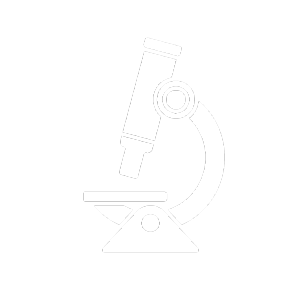Four-year grant from the National Institutes of Health will expand the Southern California Undiagnosed Diseases Network
A research partnership between CHOC and UCI Health has been awarded a $3.2-million grant from the National Institutes of Health (NIH) to build a network of referral centers in Southern California and several southwestern states to improve the diagnosis and treatment of rare diseases.
The funding significantly expands the CHOC/UCI Health Southern California Undiagnosed Diseases Network (SoCal UDN), which plans to enroll 225 patients from primarily underserved populations over the next four years.
Rare and undiagnosed diseases have a negative impact on the quality of life of patients, who are left on the road of a psychologically challenging, expensive and uncertain diagnostic odyssey that sometimes lasts years. In many cases, patients receive multiple wrong diagnoses, resulting in delayed or missed treatment.
Regional Diagnostic Center of Excellence
The SoCal UDN will serve as a regional Diagnostic Center of Excellence within the national UDN, offering in-depth expert clinical and research evaluation to improve the diagnosis and care of patients with undiagnosed diseases.
“The SoCal UDN is becoming a beacon of hope for patients facing the challenges of undiagnosed conditions,” said Dr. Jose Abdenur, medical director of metabolic disorders at CHOC. He also serves as the network’s principal investigator from CHOC together with the following co-principal investigators at UCI:
- Dr. Changrui Xiao, assistant professor, department of neurology
- Dr. Eric J. Vilain, professor, department of pediatrics
- Dr. Albert R. La Spada, Jack W. Peltason endowed chair, distinguished professor, departments of pathology & laboratory medicine and neurology
- Dr. Elizabeth C. Chao, assistant professor, department of pediatrics
Additionally, other researchers and clinicians who will also actively participate in the project include:
UCI
- Dr. Claire Henchcliffe, professor and chair, department of neurology
- Dr. Tahseen Mozaffar, professor, department of neurology
- Dr. Sanaz Attaripour, assistant professor, department of neurology
- Suzanne B. Sandmeyer, PhD, vice dean of research and professor
- Dr. Nicolas M. Phielipp, associate professor, department of neurology
CHOC
- Dr. Raymond Wang, metabolic disorders
- Dr. Maija Steernari, neurology
- Dr. Richard Chang, metabolic disorders
- Rebekah Barrick, MS, GGC, genetic counselor, metabolic clinic
- Nina Movsesyan, PhD, manager, clinical research programs
One of 15 national sites
CHOC and UCI Health were designated as a joint clinical site for the UDN in October 2023.
“UCI and CHOC have a long history of providing cutting-edge clinical care and translational research, so this UDN designation is also recognition of the effort and commitment both institutions have made to precision medicine,” Dr. Changrui Xiao, assistant professor in the department of neurology and lead of the neurogenetics program at UCI Health, said at the time.
Because of their extensive experience with rare disease diagnosis and management, CHOC and UCI Health were jointly designated as a National Organization for Rare Disorders (NORD) Rare Disease Center of Excellence in November 2021. They are one of 40 such sites in the U.S.
A commitment to improving equity
The SoCal UDN includes Ambry Genetics, one of the largest diagnostic genetic testing laboratories in the world.
The company will cover DNA sequencing costs for financially disadvantaged patients, underscoring the SoCal UDN’s strong commitment to improving equity in healthcare.
By working with rare disease experts across various institutions throughout the American Southwest, CHOC/UCI Health will expand access to large numbers of underserved populations.
In addition to identifying appropriate referrals, sites will collaborate, emphasizing clinical studies that can be performed locally to minimize travel and costs.
Addressing a need for evaluation sites
The SoCal UDN has clinical expertise in pediatric and adult neurology, metabolic diseases, neuroimmunology, immunological diseases and rare ophthalmologic diseases.
Together, CHOC and UCI Health have more than 16 medical geneticists to assist with
enrolling and evaluating patients with rare diseases. They will also provide expertise in automated tool development and natural language processing for electronic medical record phenotyping.
The unmet need of improved diagnostic processes for rare diseases led to the creation of the Undiagnosed Diseases Program (UDP) in 2008 and the Undiagnosed Diseases Network (UDN) in 2012. The network has successfully established a blueprint for advancing the discovery, diagnosis and care of patients with rare diseases.
However, to maximize the accessibility, equity and impact of rare disease diagnostic efforts, there remains a need for sustainable clinical evaluation sites that are accessible to diverse and underserved populations.
‘Beacon of hope’
Rare disease programs at CHOC include multidisciplinary clinics in metabolic disorders, neurometabolic diseases, a metabolic transitions clinic, an x-linked adrenoleukodystrophy (X-ALD) clinic and a clinical biochemical lab.
UCI Health has programs involving neuromuscular diseases, glycogen storage disorders, hereditary ataxias, Parkinson-plus syndromes, neurogenetics, mosaic skin disorders, Prader-Willi syndrome, genetic obesity, craniosynostosis, adult genetics, neurodegeneration, cardiogenetics, retinopathies, and atypical hemolytic uremic syndrome.

Learn about pediatric research and clinical trials at CHOC




